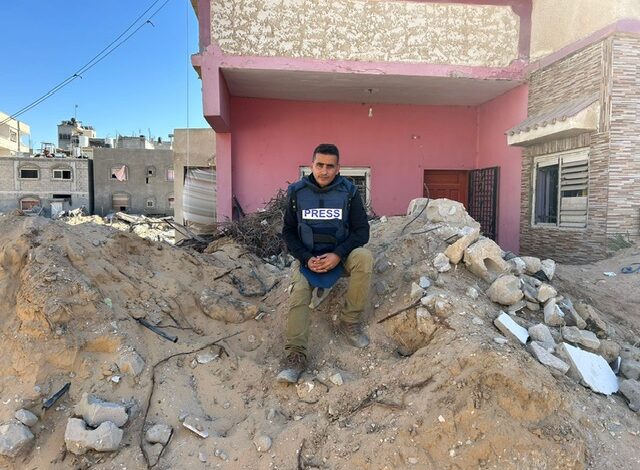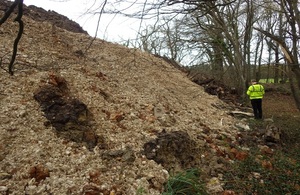Gazan Mohammad Abushahma Awarded for Investigation with OCCRP

Gazan Mohammad Abushahma Awarded for Investigation with OCCRP
Published: 04 June 2024
 Awarded investigative journalist Mohammad Abushahma sitting amidst the rubble of his home in Khan Younis. (Photo: Mohammad Abushahma, private)
Awarded investigative journalist Mohammad Abushahma sitting amidst the rubble of his home in Khan Younis. (Photo: Mohammad Abushahma, private)
By OCCRP
Palestinian journalist Mohammed Abushahma, who collaborated with OCCRP on two top-level probes into corruption in Gaza, has won the Student’s Prize under the 2024 Samir Kassir award for best investigation.
The story reveals how war profiteers and middlemen were pushing up prices of food and other vital commodities aggravating the misery of Gazans.
Abushahma was one of three finalists for the investigative reporting award. The Student’s Prize went to him while the jury members chose Hadeel Arja, as winner of the best investigative report for her story on Syrian refugee minor females injected with hormones to grow older and get married.
OCCRP did not publish Abushahma’s byline on the investigation for his own protection.
It was only after he was shortlisted for the prize that Abushahma has decided to reveal himself as the author against professional advice from colleagues.
“I have no hope that I will survive this war and I have nothing to lose anymore,” he explained his change of mind. “I bear full responsibility for my decision,” he wrote in an email to both OCCRP and the prize organizers.
A Beirut-based OCCRP colleague received the prize on his behalf as the Israel-Hamas war has prevented most Palestinians in Gaza from traveling abroad.
Sitting amidst the rubble of his home in Khan Younis, Abushahma, 36, said in a pre-recorded video he felt unable to celebrate the award he had long coveted because of the human and material devastation caused around him.
“My home has been flattened by Israeli bombings. My brother and sister and her children have died and so have many of my cousins. My small family is near extinct because of the war,” he told OCCRP.
But the father of five children, who lives with his wife and aging mother, said he dedicates the prize to all colleagues in the Gaza Strip “who have lost their lives to tell the truth in written and broadcast reports.”
Up to June 3, 2024, the war in Gaza has claimed the lives of nearly 108 reporters and media practitioners, including two Israelis and three Lebanese, according to the Committee to Protect Journalists.
The Hamas-run media office says more than 140 reporters had been killed in the conflict.
At least 36,000 Palestinians have been killed in Gaza since October 7, 2023. More than 8,000 are missing, buried under rubble.
Abushahma said he had completed the OCCRP investigation against all odds. He faced near starvation and a shortage of drinking water.
His PC was destroyed in the war and he had to borrow a laptop from a colleague to complete his stories.
“Carrying out an investigation in times of war in Gaza is very dangerous,” he said. “Sources were afraid to talk to me because of chaos and a total breakdown in law and order in addition to threats from armed men, powerful companies and families.”
In spite of all that, “it is shameful for journalists not to expose corruption and thieves,” he added.
Abushahma is a freelancer who was first trained by the Arab Reporters for Investigative Journalism (ARIJ), a leading center promoting the hitherto unknown culture of investigative journalism in 16 Arab states since its creation in 2005.
Between 2011-2019, he produced three investigations with support from ARIJ. He freelances for Daraj.com, a Beirut-based pan-Arab media platform and Jazeera.net.
The prize, now in its 19th edition, is supported by the EU and celebrates the life of Samir Kassir, a Lebanese journalist, critical of Syria’s role in Lebanon.
Kassir was assassinated by a car bomb in 2005, a few days before general elections in Lebanon.
The EU ambassador to Lebanon, Sandra De Waele, said in written remarks that the prize is one of several expressions of European commitment to press freedom.
“Over the years’ it has become a reference for thousands of journalists in the region who investigate or speak out on democracy, human rights, good governance and civic engagement,” she said.

